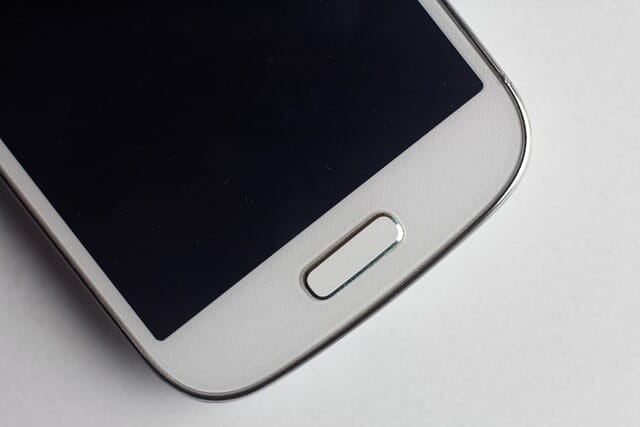
Why Knowing Who Called You Matters in Today's Digital Age
In an age where our smartphones are practically another limb, it's surprising how often we find ourselves staring at a screen filled with unknown numbers. The digital age has brought us some incredible conveniences, but it's also opened the floodgates for unsolicited calls and potential scams. So, why does knowing who called you matter? Let's dive into the nitty-gritty details—after all, this could save you from a world of hassle.

Identify Unknown Callers: The First Step to Peace of Mind
When your phone buzzes with an unknown number, what’s your first instinct? Do you answer it, or do you let it go to voicemail? Identifying unknown callers is crucial in today's fast-paced world. After all, not every call is worth your time.
The Rise of Unknown Callers
With the advent of technology, telemarketers and scammers have become more sophisticated than ever. They use caller ID spoofing techniques to make it seem like they're calling from a local number or even a trusted source. This practice can lead to confusion and anxiety about who might be on the other end of the line.
Why It's Important to Identify Unknown Callers
Knowing who called you can help prevent unwanted interactions and protect your privacy. Have you ever answered a call only to realize it was a sales pitch or, worse yet, a scam? Those moments can Caller spoofing detection be frustrating and time-consuming. By taking steps to identify unknown callers before answering, you can save yourself from unnecessary stress.
Check Missed Call Number: The Art of Curiosity
When you see a missed call notification from an unfamiliar number, what's your next move? Do you simply ignore it, or do you embark on a mini-detective mission? Mobile number lookup Checking missed call numbers is an essential part of maintaining control over your communications.
What Happens When You Don’t Check?
Ignoring missed calls may seem harmless at first glance. However, some missed calls could be crucial notifications regarding work or personal matters. For instance, if an employer is trying to reach out for an interview but uses a phone number that’s not saved in your contacts, failing to check could mean missing out on an opportunity.
Tools for Checking Missed Calls
There are numerous tools available today that allow you to check missed call numbers easily. Services like reverse phone lookup enable users to find out who called them without having to engage in direct communication. These services can provide valuable insights into whether the call was legitimate or spammy.
Spam Call Lookup: Are You Being Targeted?
In 2022 alone, the Federal Trade Commission reported billions of robocalls made within the United States—yikes! With that many scams floating around, utilizing spam call lookup services has never been more critical.
Understanding Spam Calls
Spam calls are not just annoying; they can also pose significant risks such as identity theft and fraud. These calls often employ manipulation tactics designed to extract personal information from unsuspecting victims.
Effective Spam Call Lookup Tools
Several online resources enable users to perform spam call lookups conveniently:
- Truecaller: This app identifies spam and telemarketing numbers based on user reports.
- Nomorobo: A service that blocks unwanted calls automatically.
- Hiya: An application that helps identify unknown callers while blocking spam calls in real-time.
By leveraging these tools effectively, you're not just protecting yourself; you're becoming part of a community dedicated to reducing spam calls altogether!
Unwanted Call Checker: A Shield Against Nuisance Calls
Imagine this scenario: You're enjoying a quiet evening when suddenly your phone rings with yet another unwanted call. What do you do? An unwanted call checker can help put an end to those interruptions once and for all!
The Need for Unwanted Call Checkers
As the frequency of unwanted calls continues to rise, so does the need for effective solutions. Unwanted call checkers help individuals filter out nuisance calls before they even reach their phones.
Best Practices for Using Unwanted Call Checkers
By taking proactive measures against unwanted callers, you're not only safeguarding your peace but also contributing toward making telecommunication less intrusive.
Check Phone Number Owner: Unmasking Mystery Numbers
Have you ever gotten a mysterious text message from someone claiming they were trying to reach you about "an important matter"? Sounds fishy! That’s where checking the phone number owner comes into play.
Why It’s Essential To Know Who's Calling
Being able to check who owns a specific phone number can offer several benefits:
- It aids in verifying identities.
- It protects against scams.
- It helps maintain control over personal interactions by ensuring you're communicating with trusted individuals only.
Resources for Checking Phone Number Owners
To check phone number owners efficiently:
- Use websites like Whitepages or AnyWho which provide comprehensive databases.
- Leverage mobile apps designed specifically for reverse number lookups.
By employing these tools wisely, you'll hold all the cards when dealing with unknown contacts!
Why Knowing Who Called You Matters in Today's Digital Age
In summary, understanding who called you isn't just about curiosity—it’s about empowerment! It allows us better control over our communication landscape while simultaneously enhancing our personal safety measures against potential threats lurking behind that unknown number flashing on our screens.
FAQs
1. How can I identify unknown callers?
You can identify unknown callers using various mobile applications designed for caller identification like Truecaller or Hiya which provide real-time data on incoming calls.
2. What should I do if I receive repeated spam calls?
Missed call lookupIf you're receiving repeated spam calls, consider registering your number with the National Do Not Call Registry and utilizing spam-blocking apps that prevent these unwanted interruptions.
3. Is it safe to answer unknown numbers?
Generally speaking, it's advisable to avoid answering unknown numbers unless you're expecting an important call; instead utilize tools that identify these callers before engaging in conversation.
4. How does reverse phone lookup work?
Reverse phone lookup works by allowing users inputting a phone number into search engines or apps that then retrieve information associated with that particular number such as name and address data—if available!
5. Can I block unwanted callers permanently?
Yes! Most smartphones have built-in features allowing users block specific numbers permanently so they won’t bother them again!
6. What are common signs of scam calls?
Common signs include pressure tactics urging immediate action (like “urgent repairs” needed), requests for sensitive information (like Social Security Numbers), or offers too good-to-be-true situations (like winning prizes).
Conclusion
In this digital age where anonymity reigns supreme among malicious entities looking prey upon unsuspecting victims via their phones—the importance of knowing who called cannot be overstated! By utilizing tools such as identifying caller services along with unwanted-call checkers we're arming ourselves against potential threats while reclaiming our right towards peaceful communication experiences! So next time your phone buzzes unexpectedly remember—knowledge truly is power!